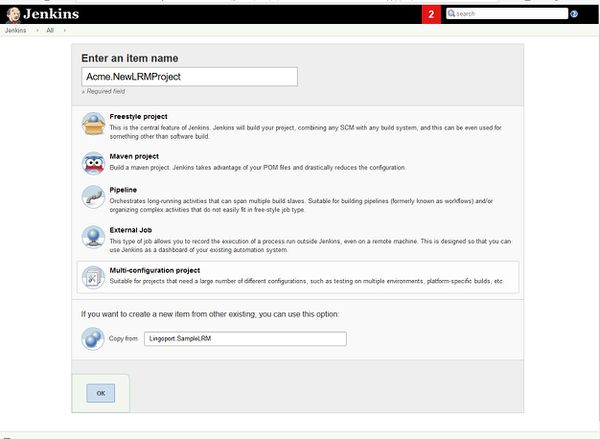Difference between revisions of "Localyzer Projects"
(→LRM Configuration) |
(→LRM Configuration) |
||
| Line 12: | Line 12: | ||
# In the ''Copy from'' box, enter '''Lingoport.SampleLRM''' or '''LingoportSampleLiteLRM'''. |
# In the ''Copy from'' box, enter '''Lingoport.SampleLRM''' or '''LingoportSampleLiteLRM'''. |
||
| − | Note-a project |
+ | Note-a project can be created using '''either''' the project definition file directly on the command line or through the Jenkins LRM Plugin. |
Revision as of 22:10, 17 June 2019
LRM Configuration
LRM creates projects using a Project Definition XML file that contains information about the resources and types for translation and then calling the Create Project Command.
This is automated in Jenkins with the Lingoport plugin.
To create a new project:
- Select New Item from the menu on the left
- In the dialog box, enter the name of the new project. The name must be of the form <group>.<project>, where the group is the name associated with the LRM license. If you are unsure about the group name, a Jenkins job called <group>.LicenseExpiration should have been created at installation. Use that <group> name.
- In the Copy from box, enter Lingoport.SampleLRM or LingoportSampleLiteLRM.
Note-a project can be created using either the project definition file directly on the command line or through the Jenkins LRM Plugin.
